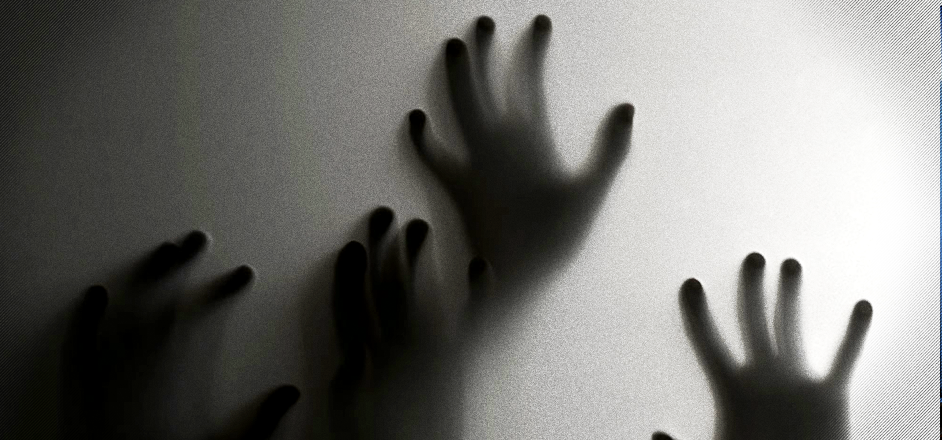Dreaming that your eyes are being eaten by rats is really good for you!
You walk into a room, and there's a bear wearing yellow overalls two inches from your face.
It roars, its hot breath whipping back your hair. Oh, great.
You shit yourself.
It eats your mom, a snack you could've stopped if you could only move. Instead, you're paralyzed, forced to watch the grizzly scene, feeling every emotion slice though your core with white hot heat when suddenly, you wake up.
You're 27, and you just had a nightmare. A completely nonsensical, yet utterly horrifying nightmare. What the fuck?
Why do our brains concoct these terrifying scenarios for us to live out that haunt and deeply disturb us well past the actual dream into our waking hours?
There are some theories.
One is that nightmares are a reaction to negative experiences we have when we're awake. Another is "threat simulation theory,” which suggests that nightmares help us rehearse what we'd do in the event of a threat, so that if it happens, we're prepared.
However, new research reveals nightmares aren't just ways for us to process existing or potential trauma, but instead, little gifts from God that actually make you a better person. Turns out, having them makes you both more creative and more emotionally intelligent.
According to one 2013 study, people who reported frequent nightmares were found to be more empathetic. They were found to be much better at unconsciously mirroring the behaviors and emotions of other people through things like contagious yawning, a phenomenon that’s been studied as a positive indicator of empathy. In turn, empathy is a sign of emotional intelligence, the capacity to be aware of, control, and express one's emotions, and to handle interpersonal relationships judiciously and empathetically. A.K.A not a serial killer.
Further research suggests that people who thrash and quiver during the night also tend to think further outside the box on word-association tasks, probing the hypothesis that bad dreams can actually enhance creativity as well.
Writing in New Scientist earlier this week, psychology PhD candidate Michelle Carr, who studies dreams at the University of Montreal’s Center for Advanced Research in Sleep Medicine, said:
Sleep researcher Ernest Hartmann, while a psychiatrist at Tufts University School of Medicine in Boston in the 1980s, found that people seeking therapy for nightmares were not necessarily more fearful or anxious, but rather had a general sensitivity to all emotional experience. He concluded that sensitivity is the driving force behind intense dreams. Heightened sensitivity to threats or fear during the day results in bad dreams and nightmares, whereas heightened passion or excitement may result in more intense positive dreams. And both these forms of dreams may feed back into waking life, perhaps increasing distress after nightmares, or promoting social bonds and empathy after positive dreams.
The effects go further still. Hartmann realized that this sensitivity spills over into perceptions and thoughts: people who have a lot of nightmares experience a dreamlike quality to their waking thoughts. And this kind of thinking seems to give them a creative edge. For instance, studies show that such people tend to have greater creative aptitude and artistic expression.
“The evidence points towards the idea that, rather than interfering with normal activity, people who are unfortunate in having a lot of nightmares also have a dreaming life that is at least as creative, positive and vivid as it can be distressing and terrifying,” wrote Carr. “What’s more, this imaginative richness is unlikely to be confined to sleep, but also permeates waking thought and daydreams.”
Even after people wake up and shake off their own versions of the mom-murdering bear with questionable fashion sense, that bear stays with them throughout the day, silently suggesting more novel solutions to problems and enhancing awareness of other people's actions and feelings. So … thanks, bear?
TL;DR? Dreaming that your eyes are being picked out by vultures makes you a better person. Bring on the night terrors.



Leave a Reply